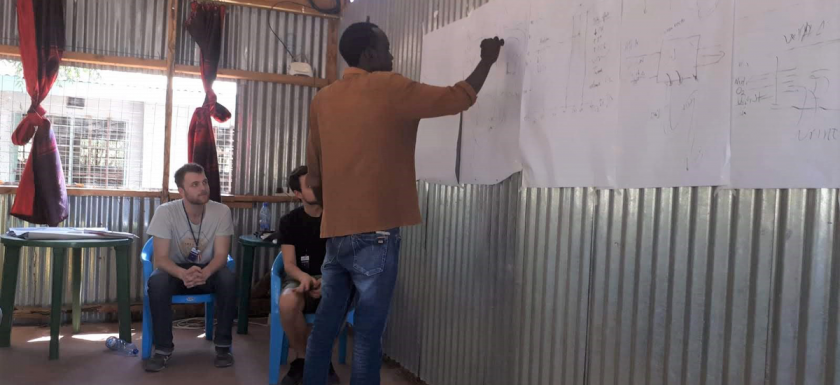
Source: The Authors
Copyright: The Authors
URL: http://www.jmir.org/2021/3/e22345/
License: CC-BY-NC-SA
Geneva, February 21, 2021 – InZone, an academic and humanitarian program for higher education in refugee contexts at the University of Geneva, is happy to announce the publication of this study with the Journal of Medical Internet Research.
The research concerns the delivery of the University of Geneva’s InZone-RAFT basic medical training course in Kakuma and Dadaab refugee camps between 2017 and 2019. The project was delivered via InZone’s collaborative blended learning ecosystem, which connects students in refugee camps, teachers, tutors, and facilitators to enable higher education in refugee contexts. The research finds that, by improving the mode of delivery, better contextualizing content, and promoting more interaction between the refugee students and their teachers, high levels of medical knowledge can be achieved.
To read this research article, please see: http://www.jmir.org/2021/3/e22345/
For more information on InZone, please see www.unige.ch/inzone/
Original article
Lovey T, O’Keeffe P, Petignat I
Basic Medical Training for Refugees via Collaborative Blended Learning: Quasi-Experimental Design
J Med Internet Res 2021;23(3):e22345
URL: http://www.jmir.org/2021/3/e22345/
doi: 10.2196/22345
